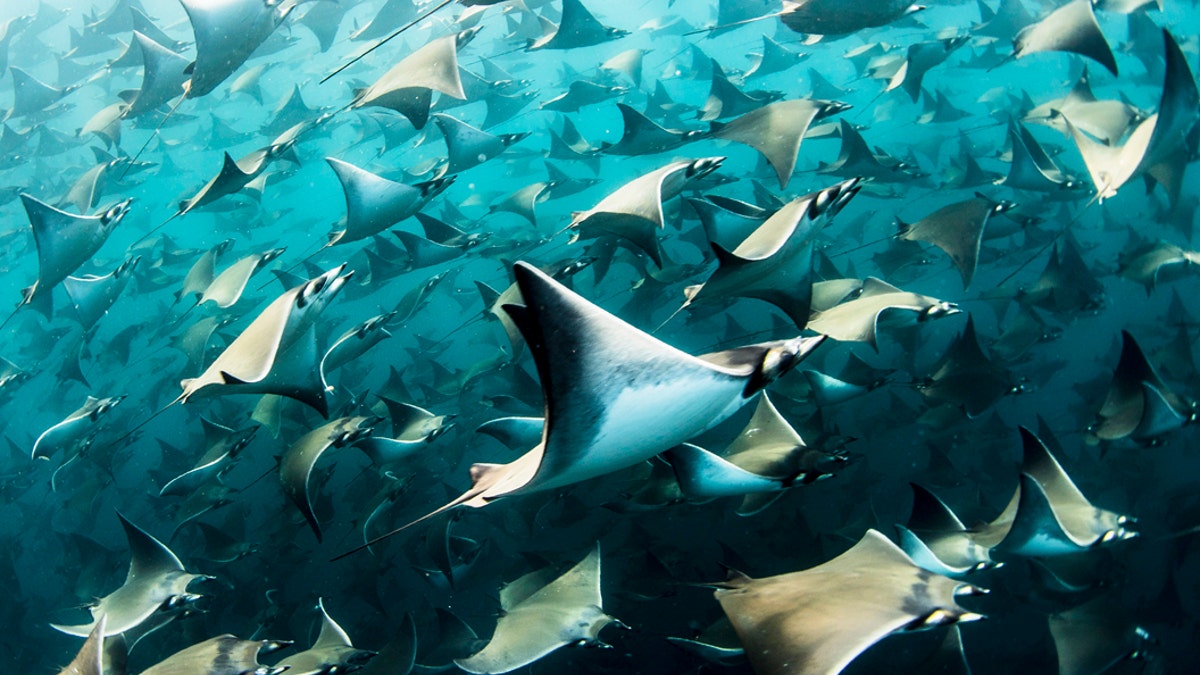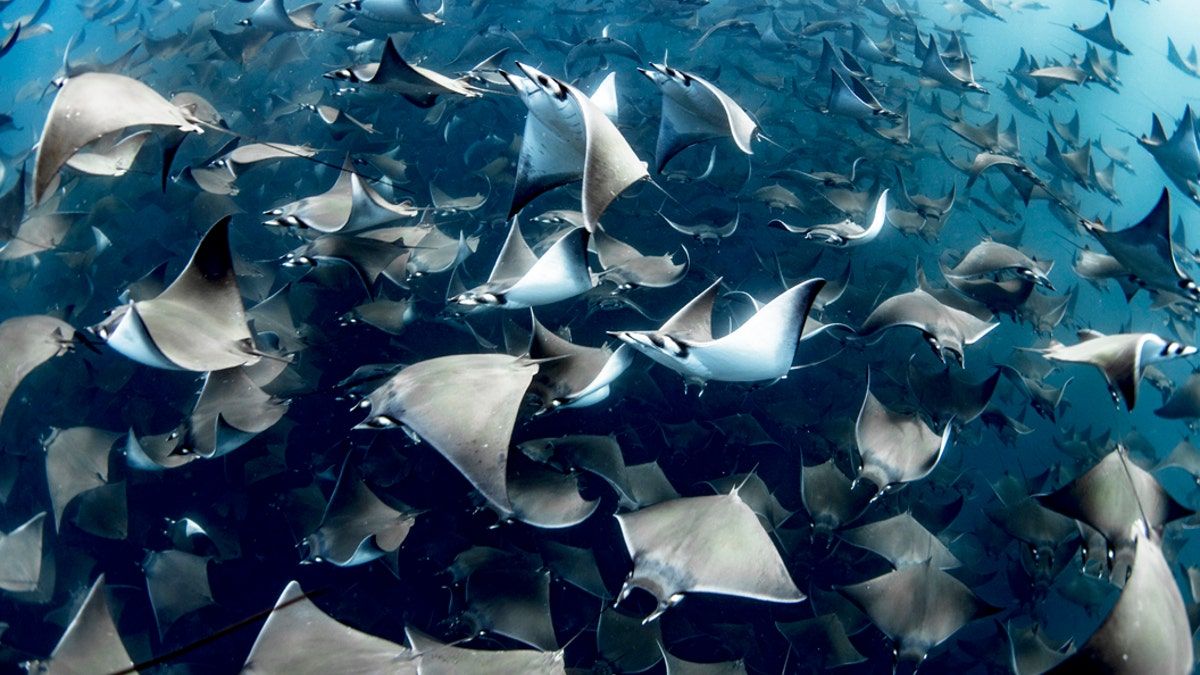Fox News Flash top headlines for Oct. 15
Fox News Flash top headlines for Oct. 15 are here. Check out what's clicking on Foxnews.com
Incredible images show a fever of thousands of Mobula rays -- also called devil rays -- swimming in near-perfect formation just off the Mexican shore.
The images were taken by ocean photographer Nadia Aly, SWNS reports. Aly, 35, had been swimming for four hours near the group in Baja California, Mexico, when she snapped the pics.
“It is very rare to get an encounter like this, with this many rays, in near-perfect visibility," Aly said in comments obtained by SWNS. “I estimate that there were over 10,000 rays. They were also not as skittish as they normally are.”

The remarkable sight was captured by ocean photographer Nadia Aly, 35, from Mountain View, California, who spent four hours with the estimated 10,000 rays in the Baja of Mexico, in the northwest of the country. (Credit: SWNS)
HUMPBACK WHALES USE 'BUBBLE NETS' TO CATCH PREY, VIDEO SHOWS
Closely related to sharks, Mobula rays are difficult to film and are considered shy. Mobula rays are often mistaken for manta rays and have been known to fly out of the ocean, according to scientists at Boston University.
It's unclear why Mobula rays jump out of the ocean, but some theories include removing parasites from their bodies, exercise, mating rituals, hunting and being playful.

It’s rare to see so many rays in such perfect visibility and the encounter saw the creatures at varying depths, ranging from the surface, down to 100 feet. (Credit: SWNS)
According to Our Seas Our Future Charitable Trust, Mobula rays, which have described by some fishermen as "flying tortillas" for their aquatic acrobatics, can jump as high as 6 feet out of the water, before belly-flopping back into the sea.
The largest rays in the species can reach up to 17 feet from tip to tip and are often found in temperate and tropical waters around the globe.









































